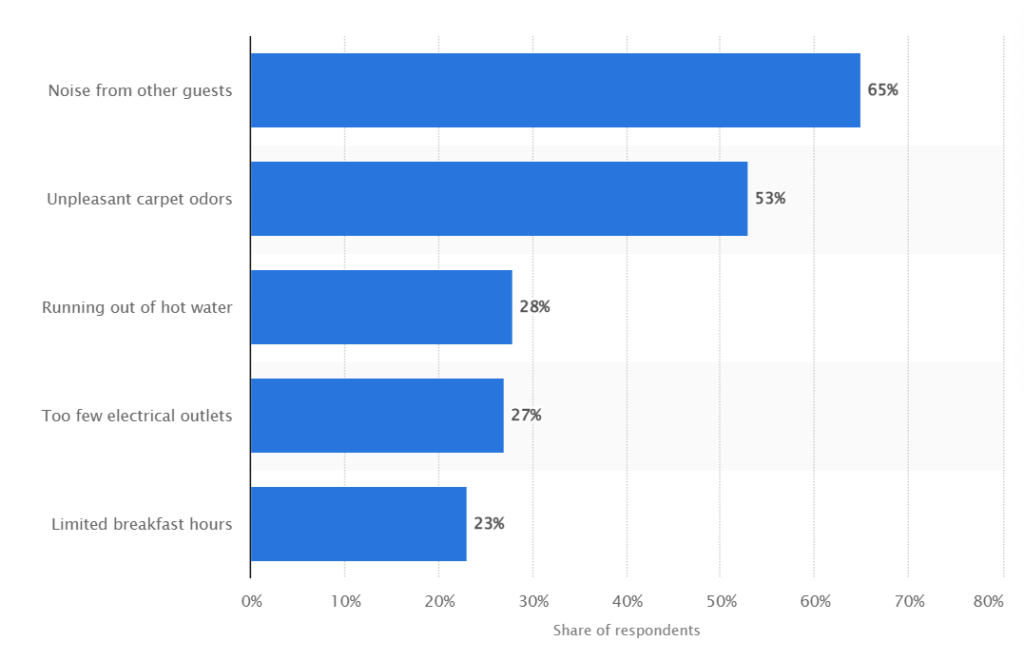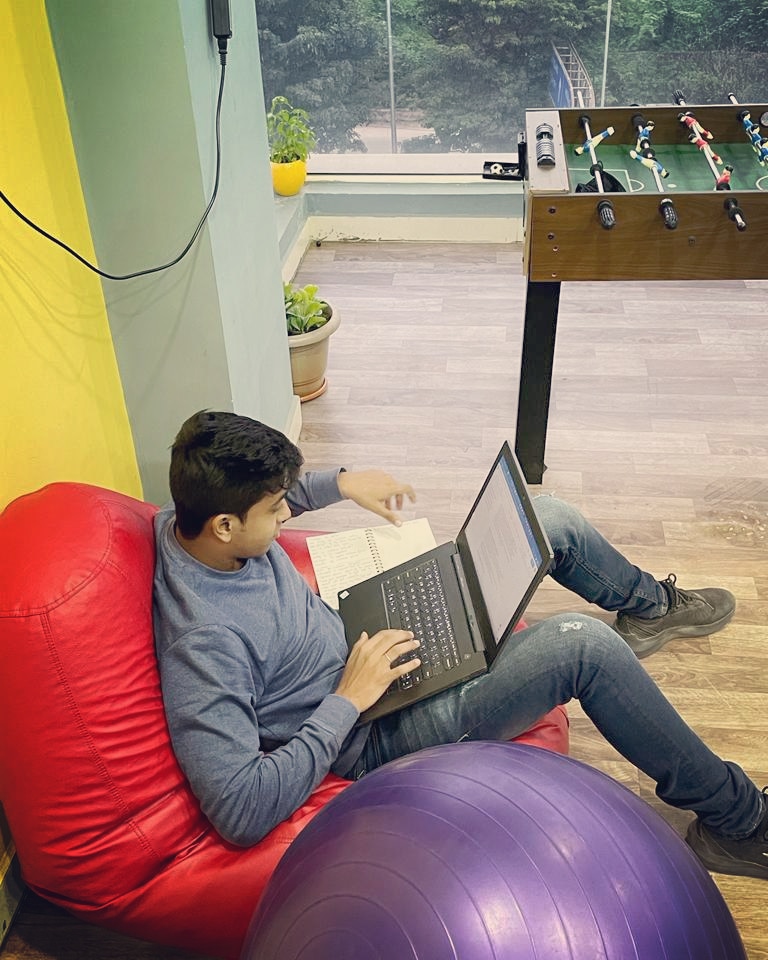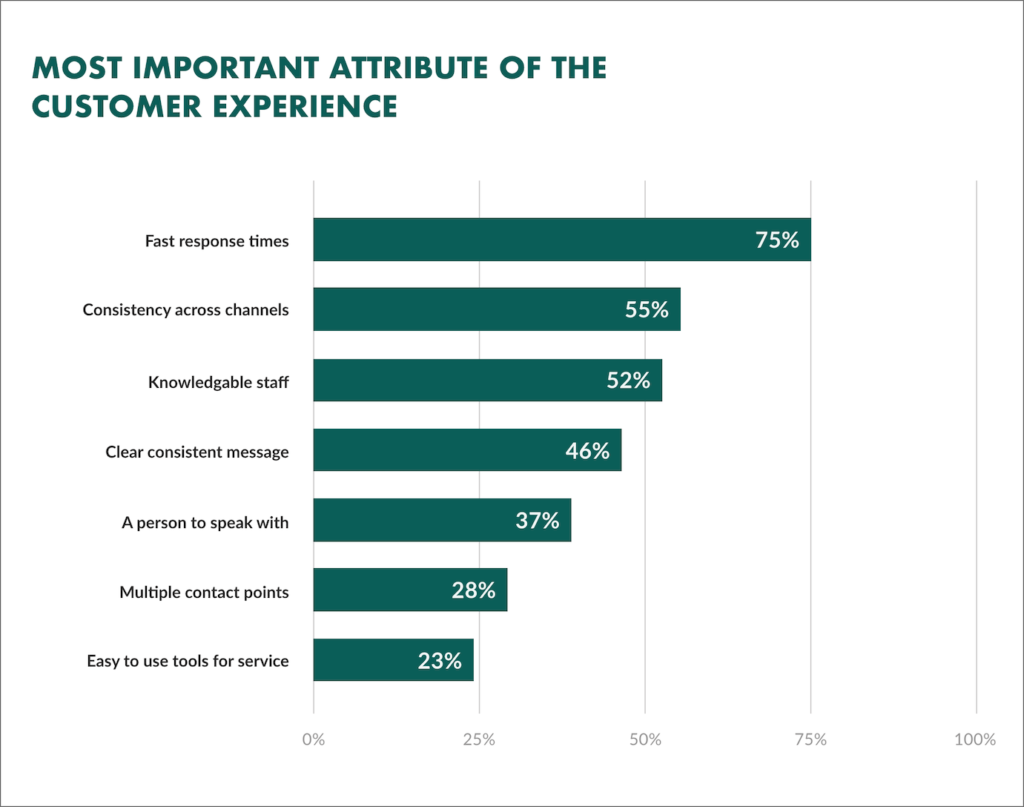The hospitality industry is all about delivering a seamless customer service experience. One bad customer experience can have an immense impact on the reputation of the hotel.
Hotels that do all in their power to avoid frequent problems have a higher chance of keeping clients and maintaining an unblemished image. It is critical for hotels to know how to handle any issue and to teach their personnel to be ready if any difficulties arise.
Handling guest complaints in the hotel industry can be tough if you don’t have a proper service CRM software that helps you smoothly resolve all customer complaints.
Being constantly ready to rejoice and satisfy your guests is a sure-shot way to promote repeat business, maintain your hotel’s brand reputation, and increase overall revenue. Poor service, on the other hand, will almost certainly drive existing visitors to schedule their future visits elsewhere.

Common complaints by hotel guests
To begin, hoteliers must be aware of the most common guest complaints across the industry as a whole, as well as at their individual properties.
In this manner, management can be prepared to handle ordinary problems when they emerge, while still having the bandwidth to deal with more specific challenges if necessary.
Here is a list of the most common customer complaints in hotels-
1. Lack of self-serve options
70% of guests want to use technology to speed up service time. – Source
Self-serve reduces half the burden of your staff and helps in providing a fast customer service experience. When customers are empowered with a self-serve option to book a hotel room or call room services without human involvement, they feel more comfortable.
It reduces the need for them to call and ask common questions to the reception and get answers or queries resolved on their own.
Lack of self-serve may lead to a bad customer service experience for the customers as they have to spend time on getting their service over a call.
After implementing Kapture your customers can enjoy self-serve and book hotel rooms on their own. Kapture’s smart AI-powered chatbot can help them easily resolve small queries on their own creating a delightful experience.
2. Unclean rooms
For each new visitor, hotel rooms are supposed to be immaculate and flawless, and a dirty room is any hotelier’s definition of a terrible day.
Whether it’s hair in the bathtub or footwear left in a bottom drawer, visitors typically have valid grounds for complaining about room cleanliness.
When these difficulties are dealt with quickly and thoughtfully, they are usually less difficult to resolve.
Ensure that housekeeping personnel clean to proper hotel standards on a regular basis, Ask Front-desk employees should make incoming customers wait until the room can be cleaned instead of offering them an unclean room.
3. Bad staff attitude
Attitude and behavior problems in hotels are very frequent. Every hotel, large or small, receives complaints from guests regarding the disrespectful, unprofessional, and uncaring behavior of hotel service members.
Nasty remarks, laughing at hotel guests, or even getting into an argument with hotel guests all happen on a daily basis in hotels around the world. Half of your entire hotel experience is determined by the (un)pleasantness of your employees, so make sure they are adequately trained.
Team members should be well-trained by Kapture’s Learning Management System in order to quickly resolve guest complaints, convey sincere apologies, and implement required modifications to lessen the recurrence of the issue.
4. Mechanical issues
Mechanical complaints are about difficulties with the hotel’s equipment. The majority of client complaints were about hotel equipment failures.
It is often concerned with air conditioning, lighting, power, room furniture, vending machines, ice machines, door keys, plumbing, television, and other similar issues.
Using a front office log book and maintenance work orders effectively may assist to minimise the frequency of mechanical complaints.
5. Lack of communication
Lack of communication between the hotels and the customers leads to one of the most common customer complaints in the hotel industry.
Hotel services must be closed for a variety of reasons, and visitors will surely be unhappy if a service or facility they had intended to use is no longer available. To minimize surprises, hotel management should do their utmost to convey the status of closed services to existing and future visitors.
Most customers’ travel plans are heavily influenced by their budget, so when they discover unexpected fees after booking their trip, they are likely to be dissatisfied.
Throughout the booking process, be forthright with your visitors regarding prices and fees, and make sure your employees can refer to written notification of those expenses if a complaint arises.
6. Poor customer service
You are super hungry and order food from your hotel room. It’s been an hour and food hasn’t arrived yet.
You become furious and raise complaints at the front desk.
Due to a lack of proper streamlined customer service software the front desk person is unable to communicate with the kitchen and know the reason behind the delay. This leads to delayed customer resolution that adds up to a bad experience for the customer. We can keep a track of all customer service-related complaints through help desk ticketing system.
Fast and effective customer service plays an important role in the hotel industry. The customers in the hotel industry are impatient as they expect fast service from the hospitality industry.
7. Poor food or beverage quality
Today’s hotel customers expect quality in all elements of their stay, including food quality. Food-related complaints should be directed directly to the workers responsible for preparing and delivering the meals in order to avoid such problems in the future.
This does not just apply to room service; breakfast served in communal areas should be of good quality, even if it is continental.
The best way to avoid such complaints is to take regular feedback about the food from customers and make the necessary changes.
8. Noisy neighbors
When your customers rent a hotel room, they are searching for a relaxing location to unwind after a hard day of work, travel, or sightseeing. They desire peace and quiet, as well as a good night’s sleep.
While you may not be able to visit every floor of your hotel, you can set the tone for peaceful corridors and rooms. Make it clear to all of your visitors that you expect calm in your halls after a particular hour.
9. No hot water
Consider a guest who arrives at a hotel fatigued following a long journey and merely wants to take a lengthy, hot shower. And, to his dismay, there is no hot water! A visitor like this will be contacting reception in rage, asking that the situation be resolved quickly.
This sort of problem may completely destroy your visitors’ day, and you can be certain that they will not return the following year. If the problem is limited to that room, give the visitor a transfer to another room and make an effort to apologize to them.
10. Small Beds
From worn mattresses to soiled bedding, this is an age-old problem. Guests may be frequently disappointed by the size of the mattresses.
Most hotel guests place a high value on a comfy bed. A good night’s sleep is crucial whether they are on a work trip, a relaxing holiday, or a short break. It’s also what will keep them coming back for more.
This is why it’s critical to invest in high-quality bedding, duvets, and pillows to create a welcoming setting for your visitors to unwind in after a hard day.
11. The temperature of the room
Guests may not be happy with the uneven temperature of the room due to zero control over the ac or thermostat. The guests may feel too hot or too cold with the defined ac or thermostat settings.
Whatever you do to attempt to prepare, this problem will always find a way to rear its ugly head. While one individual may perceive the temperature to be just right, another may find it to be far too hot or freezing. I wish there was a one-size-fits-all solution, but there isn’t.
12. No or slow Wifi
You may expect that almost all of your guests demand fast Wi-Fi. Poor Wi-Fi will annoy them whether they are watching Netflix, working, or browsing Instagram.
When it comes to your hotel’s Wi-Fi, make sure you provide your visitors with the necessary login details. Don’t make them seek it or call you for it.
Finally, increase the speed of your Wi-Fi and make it available for free. You could discover that by providing just one service, you improve the number of favorable customer evaluations online as well as the general contentment of your consumers.
13. Unwanted insects or animals
When individuals reserve a room for only one person. That implies they should be the only ones who stay. So if they come upon a bug, spider, or rodent, you should anticipate a major complaint.
If guests find themselves in this circumstance, your best bet is to provide a complete refund as well as another accommodation for their stay.
14. Foul smells
This is a really clear issue, and you can’t blame the visitor for complaining. No one likes to spend even a few minutes, many alone numerous nights, in a stinky room.
If you receive this complaint, make sure it is addressed right away by having a cleaning team go to their room and scrub it clean.
15. Denying reservations
In certain cases, hotels would intentionally overbook their rooms in order to maximize their revenues. While this may be profitable, what occurs is that individuals arrive anticipating a room and are instead told there are none available.
This, predictably, enrages visitors, who demand an explanation for why their rooms aren’t accessible.
If you find yourself in this circumstance, your best strategy is to pay for them to stay in a nearby hotel while also paying for a complimentary upgrade.
16. Staff not respecting DND signs
In all hotels, a “Do not disturb” sign should be revered. Your customers pay for the right to feel at ease, and having hotel employees obey the do not disturb sign anytime it is shown is a huge part of that.
Discuss the significance of honoring the sign with your employees, and make sure that each and every room has one.
17. Delayed services
Perhaps their room service dinner arrived late or cold, they were unable to get a spa treatment, or the front desk refused to do anything that concierge offices do not do. Service complaints are among the most likely to be false or, at the very least, not totally grounded in fact.
However, each one should be treated seriously for the sake of visitors and the resolution of any actual difficulties that arise.
Every service-related issue must be handled with kindness and concern. Apologize to the visitor and deliver the closest thing your hotel has to what they anticipated.
18. Theft of a personal item
Theft is a significant problem in any culture and should be dealt with as such. When a visitor accuses a hotel employee of stealing their goods, hotel management should proceed with caution and follow strict hotel rules and an agreed resolution method.
19. Not allowing pets
Once again, certain visitors will always have problems with regulations that are clearly mentioned on your website and brochures. However, the fact that they are your visitors does not affect the fact that they must be treated with the utmost respect.
If a guest arrives at your hotel with a pet despite the fact that you have a strict no-pet policy, be sure to explain your policies and even suggest nearby hotels that are pet-friendly.
20. Lack of complimentary supplies
Although it may not appear to be the most critical element, customers anticipate complimentary amenities such as shampoo, soaps, and coffee.
In order to keep your visitors as pleased as possible, these goods should be plentiful and match the high-quality status of everything else your hotel has to offer.
21. Less than stellar breakfast
The majority of hotels advertise a complimentary continental breakfast to their visitors. And, while it’s free, your guests are still expecting a high-quality lunch to start their day.
Many hotels make the mistake of sacrificing quality in order to save money, resulting in low-quality meals for your clients that can affect the service. Make an effort to go above and beyond with your hotel’s breakfast so that your visitors aren’t forced to buy takeout.
Ways to handle guest complaints in the hotel industry
Your employees should respond to complaints swiftly, professionally, and honestly to achieve overall visitor satisfaction despite unavoidable guest experience concerns.
Here are some wonderful recommendations for best practices in handling guest concerns in your hotel business:
- Listen
- Stay calm
- Accept mistakes
- Train your staff well
- Follow up and resolve the issue
- Ask for an NPS survey
- Act on the feedback
1. Listen
It is always important to know the point of view of the guest and know their side of the story. Best resolution can only be achieved by listening to and understanding the guests’ complaints.
2. Stay calm
The most important thing your visitors expect from you is that you are nice and have good manners. When a guest is dissatisfied, his or her emotions are likely to be strong, but you must remain cool so that things do not escalate.
It might be difficult to remain calm and collected while someone is moaning, but remaining courteous will keep you calm.
3. Accept mistakes and apologize
When your hotel receives a complaint, personnel should listen to the visitor, be pleasant, and attempt to understand the situation from the client’s perspective. All parties will gain if they avoid taking these criticisms personally and focus on finding a solution.
To begin with, apologize for any type of complaint. Whether the complaint is true or not, what matters is how you respond to it.
4. Train your staff well
Not all employees are comfortable dealing with complaints, but you may help by teaching them. Discuss your policies for dealing with complaints, and make sure everyone knows they can go to a higher-up if they need to.
Kapture’s Learning Management System ensures that all your staff is trained in a fun way. It ensures that staff is up to date with all hotel’s policies and the ways in which they have to handle complaints.
5. Follow up and resolve the issue
When implementing your hotel’s guest complaint resolution approach, team members should ensure that guests are aware of the solution and are kept up to date on the overall settlement of the issue.
Try to make them feel heard and that their satisfaction as a guest is a priority for you and your crew.
6. Ask for an NPS survey
Data is the key!
When visitors check out, especially those who have made a complaint, invite them to complete a Net Promoter Score (NPS) survey.
Using these questionnaires, guests may offer immediate feedback while the interactions are still fresh in their thoughts.
The findings of these surveys may provide your staff with an indication of how successfully they are resolving guest concerns. It can help you better understand how the visitors are feeling.
Effectively utilizing NPS survey data may help your hotel expand, enhance earnings, and streamline operations over time.
Kapture helps you collect and analyze the NPS survey that can help you understand your customer and see if they will recommend your services to others or not.
7. Act on the feedback
One of the most beneficial reactions to a complaint is to use the feedback to improve the overall customer experience. For every individual who complains, there might be a hundred who remain silent.
Always try to make your company the greatest that it can be by acting on the feedback to improve your service.
Handle complaints seamlessly with Kapture
Kapture offers your customers the self-serve experience to get their queries answered on their own. The contextually intelligent system offers the best resolution to the guests in one go.
Kapture’s Learning Management System can ensure proper training of your staff so that they can easily and efficiently handle complaints of your customers.
The Knowledge Management System keeps all the data centralized and keeps both the customers and staff updated about all the hotel policies to avoid any kind of miscommunication.
Implement Kapture today to deliver a seamless and delightful experience to your guests.
About the Author | |
 | Ankit Kochar |
| Ankit Kochar is a content writer at Kapture CRM who loves to write creative as well as informative content. He has worked as a creative and academic content writer in the past and has a keen knowledge of writing reports, essays and dissertations. His current field is helping him research and hone his SaaS knowledge. | |
,
,
,
,
,
,
,
,
,
,
,
,
,








